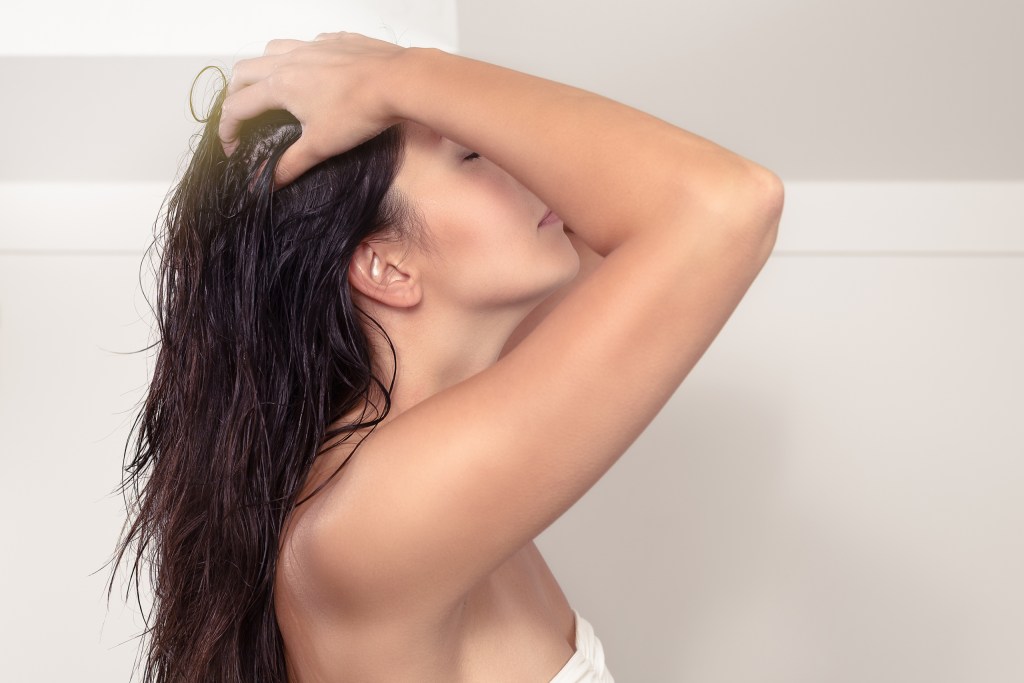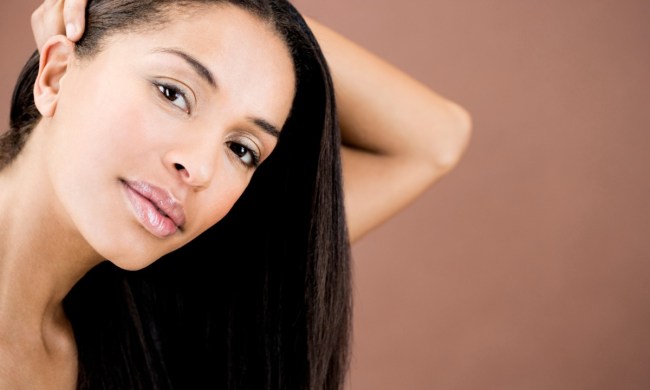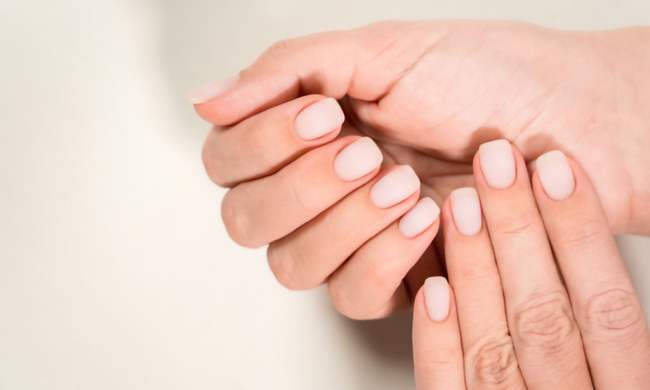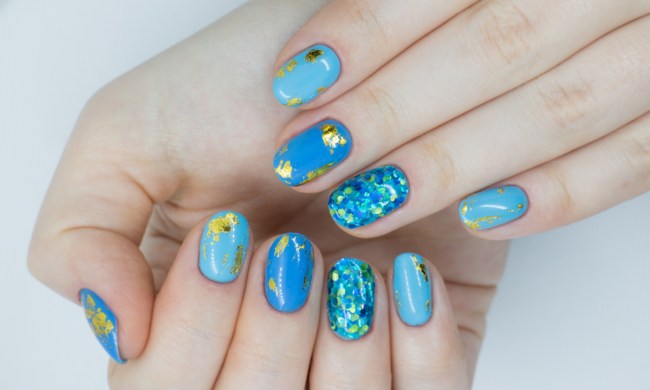From shampooing and conditioning to at-home and salon treatments and styling, most of us spend a lot of time and money caring for our hair. But, even with all the conditioning, coloring, brushing, and blowouts, it turns out there’s one thing we often overlook in our quest for gorgeous tresses: maintaining a healthy scalp.
With experts learning more about how the scalp is at the root (literally) of how hair looks, feels, and behaves, scalp care has become one of the biggest emerging trends in the beauty industry. No longer are companies focusing only on products catering just to those with dandruff or serious scalp conditions, but on everyday scalp needs for every hair type.
“Healthy hair starts at the root, so scalp care is important for everyone,” says Erica Vega, brand and product expert at Lush Cosmetics. “The hair that we see forms in the scalp’s hair follicles, so caring for the scalp is essential for healthy hair growth.”
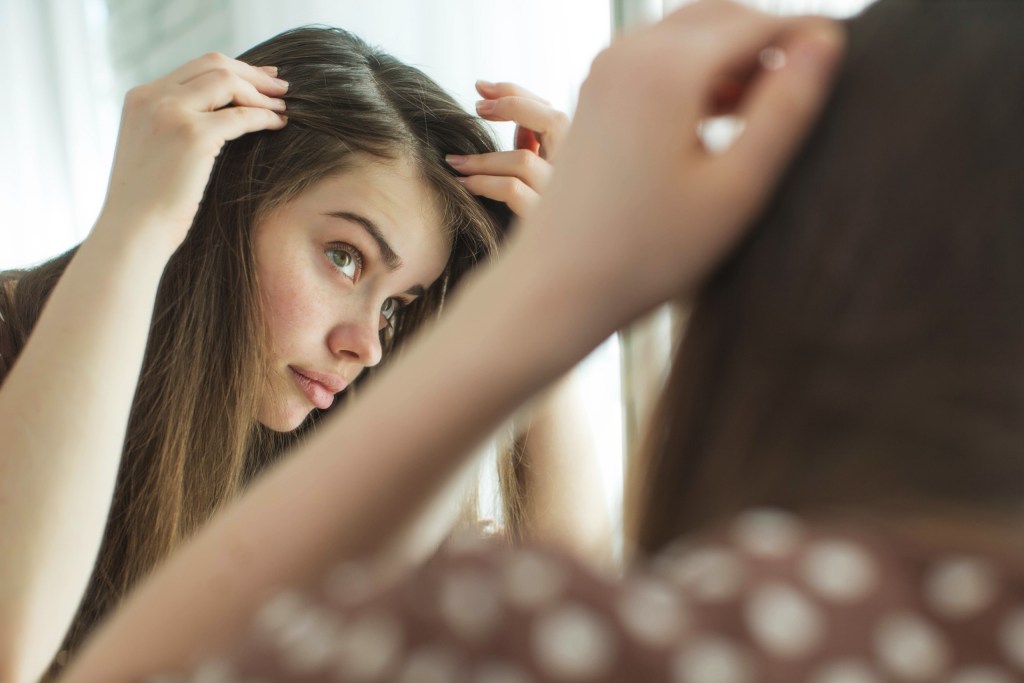
Internal and external stressors can affect the scalp
To understand why the scalp plays such a key role in having a healthy head of hair, it’s good to first know a bit about the scalp itself. The scalp consists of five layers: The innermost layer, which is actually the outer layer of the skull; the next three layers made of muscle and connective tissue; and the outer layer made of skin containing hair follicles and sebaceous (sweat glands), which is the layer we usually think of when talking about the scalp.
Just like our digestive systems and skin, everyone’s scalp has its own unique microbiome, a mix of bacteria and other microorganisms. Scientists are discovering how an out-of-balance microbiome can influence disease processes.
“The microbiome and how it affects us is a hot topic,” says Dr. Hadley King, a board-certified dermatologist with offices in New York City. “Awareness of it started with the gut, but we are learning more and more how the microbiome affects the skin, and it’s certainly true for the scalp, as well. For people with acne folliculitis (inflamed hair follicles due to an infection) and seborrheic dermatitis (a skin condition that causes dandruff), there are genetic and other reasons, but we have to consider the microbiome, too.”
Hormones can also affect the scalp and hair — as any woman who’s gone through pregnancy or menopause can attest to. “Hormone levels as well as how sensitive your sebaceous glands and hair follicles are to hormones can have an effect, and that’s genetically determined,” says King.
Stress can also wreak havoc on the scalp and contribute to hair loss or thinning. “Telogen effluvium is a type of hair loss that occurs after stress to the body or mind,” says King. “It can happen after giving birth or stopping birth control pills, after the loss of a job or loved one, or surgery. We’re seeing a lot of people experiencing the condition now from the stress of having had COVID-19 or just the stressful year we’ve all had.”
Avoid haircare no-no’s
Your genetics also play a big part in whether your scalp tends to be oily, dry, or sensitive. Poor diet, sun, and cold or dry weather can also be major scalp stressors, as can your haircare habits. For example, though it seems counterintuitive, not washing your hair enough can make dandruff worse by allowing oils and yeast that contribute to inflammation to remain on the scalp, says King. Overusing dry shampoo can also contribute to an unhealthy scalp because, despite the name, it’s not “shampoo” and isn’t really cleaning your hair or scalp.
“Dry shampoo absorbs oil to make it less noticeable, but it does not remove oil and other debris,” says King. “The oil can still help feed the yeast and therefore contribute to dandruff. Also, using dry shampoo without washing it out for a while can lead to a buildup of the product, which can cause itch and irritation, and potentially could increase the risk of infection.”
As an alternative to dry shampoo, King likes Carter + Jane Scalpfix, a spray that uses organic and naturally derived vegan ingredients, including rosemary, peppermint, and manuka oils, to cleanse and remove oils.
How to find the right products for your needs
While there are a lot of factors that can contribute to an unhealthy scalp, take heart because there is also a growing bounty of scalp care products available. When looking, remember that scalp care is not “one size fits all.” A good starting point is to find products that use ingredients targeted to your hair or scalp type.
For dry, itchy, irritated scalps
If you have a dry, itchy, or irritated scalp, Vega suggests using moisturizing ingredients that aren’t too rich. “Seaweed, herbal infusions like rosemary or lavender, and essential oils like tea tree, rosemary, coconut, cedar, sage, or cade are very useful,” says Vega. “Every now and again, a good scrub is helpful to decongest the follicles and slough away dead skin cells. The sea salt in Lush Big Shampoo is great for this.”
Products with zinc pyrithione, zinc carbonate, and salicylic acid can also help with dry flakes. Vega recommends Lush’s Superbalm Scalp Treatment, made specifically for flaky scalps with salicylic acid to remove oil and essential oils to soothe.
One note: If you have seborrhea, or dandruff that’s oily, it’s usually due to a fungal infection and requires medicated shampoo. (If you have troublesome dandruff or other scalp issues, it’s best to see a dermatologist for evaluation.)
For dry scalps and dry hair
If your hair is also dry, look for products with natural oils. “Olive oil can increase tensile strength by three times over untreated dry hair,” says Vega. “Almost all vegetable oils and butters are useful here, especially toward the ends. Almond oil, avocado butter, coconut oil, aquafaba (chickpea water), and honey are all effective.”
The Royal Oils by Head & Shoulders Collection
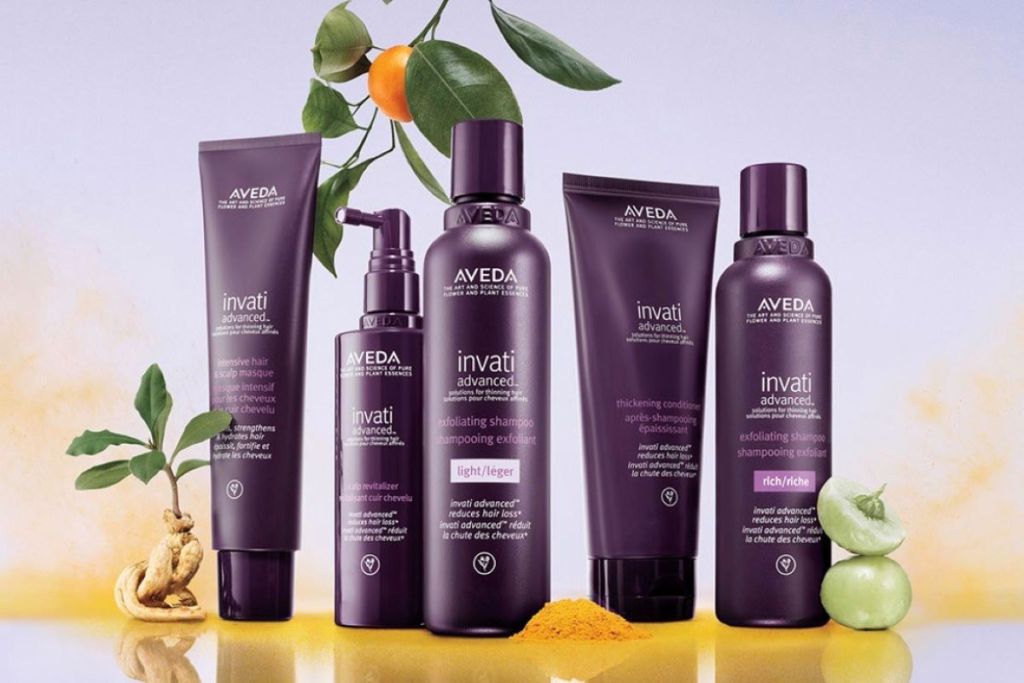
For oily hair
On the flip side, those with oily hair or hair that needs frequent washing can benefit from products with salicylic acid, which penetrate pores and get rid of excess oil, or charcoal, which absorbs oil, says King. Balancing essential oils such as lavender, rosemary, juniper, and tea tree can also help regulate the sebaceous glands, says Vega.
If you fall into the frequent-washing category, OGX Extra Strength Healthy Scalp + Teatree Mint Collection has products, including a scalp restoring oil, that combine tea tree oil with peppermint extract and witch hazel to cleanse and rebalance the scalp. Love Beauty and Planet offers a Delightful Detox Collection — including a scrub that doubles as a shampoo — with charcoal, bergamot, and coconut oil.
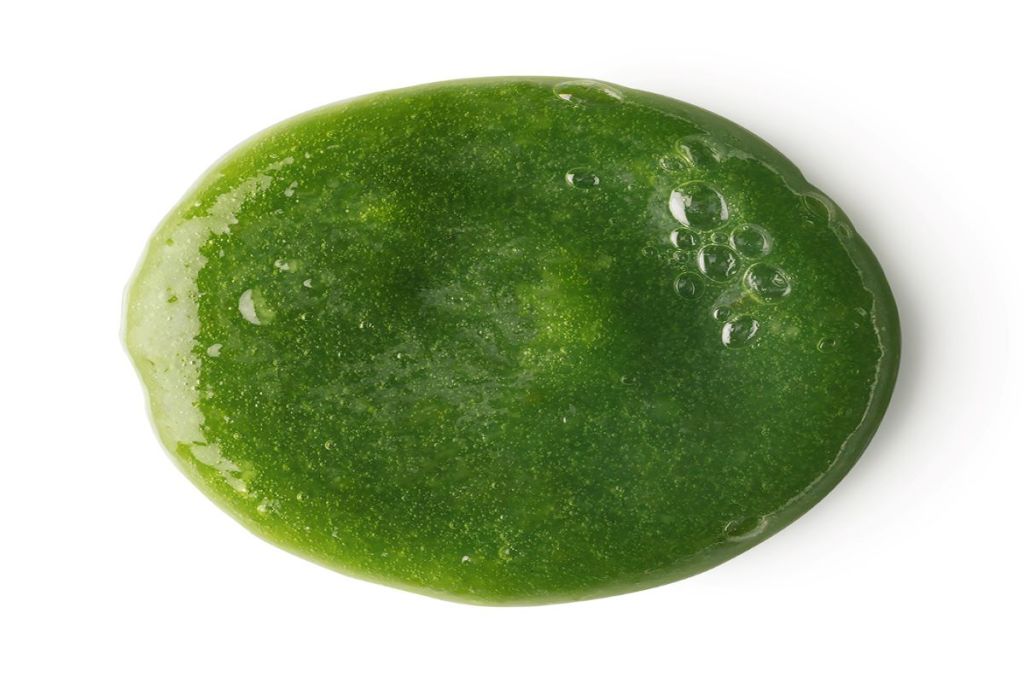
For fine or thinning hair
For fine or thinning hair, certain oils can also benefit the scalp, says King. A 2015 study that compared rosemary oil to minoxidil, a medication used for hair loss, for hair growth showed similar significant growth increases in both groups after six months.
“This effect could be due to rosemary oil’s enhancement of microcapillary perfusion,” says King. “There is also a lot of anecdotal evidence that castor oil is helpful, although there’s no scientific proof of that.”
Stimulating ingredients like peppermint, cinnamon, and clove can also be good choices if your strands are thinning, says Vega. “These ingredients can all help to stimulate the blood vessels in the scalp to deliver nourishment and oxygen while flushing away toxins,” she says. “It is not a miracle grow cure, but it is a natural aide.”
She likes Lush’s Wasabi Shan Kui Shampoo, which combines scrubbing sea salt with invigorating horseradish and wasabi.
Those with fine or thinning hair can also turn to the Aveda Invati Advanced Collection, which uses organic turmeric and Ayurvedic herbs to enhance hair growth. The collection recently added an Intensive Hair and Scalp Masque that uses plant-based oils, butters, and polymers, along with an Exfoliating Shampoo-Light for fine hair types with normal to oily scalps.
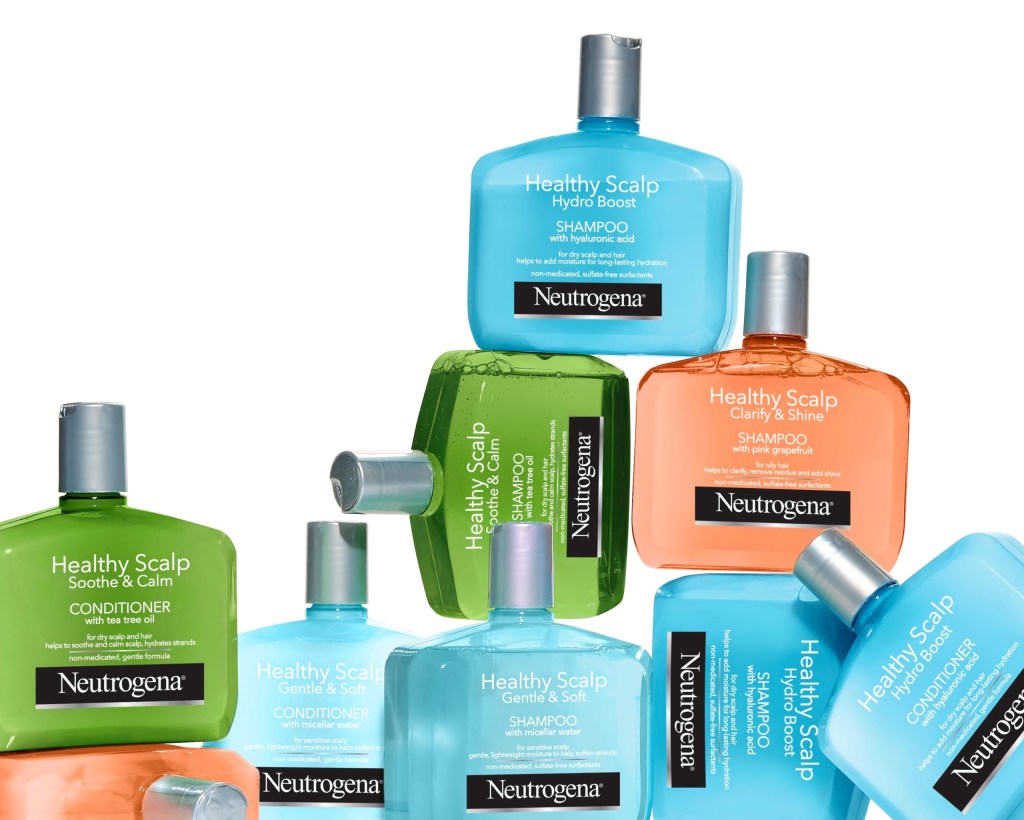
For anyone who’s still unsure
If you still don’t know where to start, you can try a collection that takes out the guesswork. The four varieties of shampoos and conditioners in the Neutrogena Healthy Scalp Collection
When to include scalp care in your routine
Once you’ve found the right products, you might wonder how often you should use them. Just like ingredients, that really depends on your personal needs.
“The most important information we can relay is listen to your body,” says Vega. “If you give your scalp a little scratch and you have dead skin under your nails, a scrub could really help. Those with oily scalps but little sensitivity can probably get away with scrubbing the scalp once a week. Those with textured hair may wet their hair throughout the week but may enjoy a scrub just on wash day. Those with sensitive scalps or thin or fine hair probably don’t need a scalp scrub at all or need to go very gently.”
If you’re unsure, it’s best to consult with a hair care expert or even your derm. “What you should do really depends on your scalp and what the product is,” says King. “Our scalps vary so much it just depends on the person.”
BlissMark provides information regarding health, wellness, and beauty. The information within this article is not intended to be medical advice. Before starting any diet or exercise routine, consult your physician. If you don’t have a primary care physician, the United States Health & Human Services department has a free online tool that can help you locate a clinic in your area. We are not medical professionals, have not verified or vetted any programs, and in no way intend our content to be anything more than informative and inspiring.

